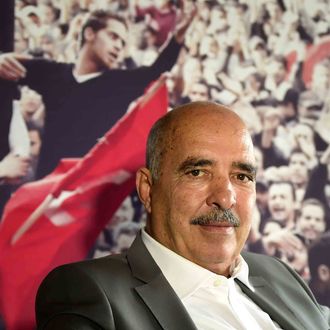
On Friday, the National Dialogue Quartet of Tunisia won the Nobel Peace Prize for its role in fostering democracy following the 2011 Jasmine Revolution, the country’s term for its Arab Spring movement. Despite its musical-sounding name, the quartet is made up of four civil-society organizations that broadly represent labor, trade, and human rights. They include the Tunisian General Labour Union, the Tunisian Confederation of Industry, Trade and Handicrafts, the Tunisian Human Rights League, and the Tunisian Order of Lawyers.
According to the Norwegian Nobel Commission, which awards the Peace Prize, the Quartet came together in the summer of 2013 when Tunisia’s fledgling government was on the verge of collapse in the face of widespread protests — pitting Islamists against proponents of secular rule — and the assassinations of two opposition leaders. In 2010, Tunisia sparked the movement that became known as the Arab Spring when a street vendor set himself on fire as an act of defiance against the authoritarian government. The forces that ignited unrest in Tunisia quickly spread across the region, but unlike other states where the experiment seemingly failed, as in Libya or Syria, which descended into violence, Tunisia managed to pull itself back from the brink. The Quartet members were pivotal in shoring up the rule of law and helped repair political and religious divides, said Kaci Kullmann Five, the head of the Nobel committee, by paving “the way for peaceful dialogue between the citizens.”
The Quartet was something of an upset winner — marquee names such as Pope Francis, German chancellor Angela Merkel, Secretary of State John Kerry, and even Edward Snowden (again) topped the list of potential honorees. However, many interpreted the Nobel committee’s decision as a signal of support toward Tunisia, and perhaps the larger struggles of the Middle East. Tunisia is also vulnerable in the face of Islamic extremism and witnessed several attacks this year, including a massacre at a resort in June that killed 38 people. The BBC’s Rana Jawad described this as “a tough year for Tunisia,” saying that giving the Peace Prize to the National Dialogue Quartet might “restore some faith in where things went right not long ago.”





























